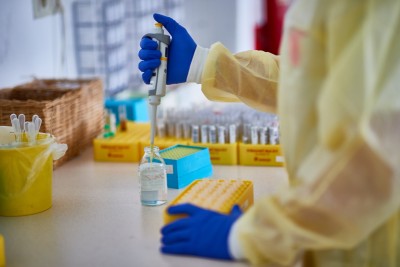Covid-19 in Austria: The New Corona Regulations for Vaccinated Persons
If you wish to visit a hotel or pub in Austria, or use a service provider such as a hair salon, partial vaccination is no longer sufficient. Since August 15, only when fully immunized is a vaccination considered proof of a low epidemiological risk. What are the details of the new regulation?
 Good to know: As of August 15, 2021, new corona regulations have come into force in Austria. / Picture: © BMI Bundesministerium für Inneres / Alexander Tuma
Good to know: As of August 15, 2021, new corona regulations have come into force in Austria. / Picture: © BMI Bundesministerium für Inneres / Alexander Tuma
As of now, the Green Passport - in addition to tested and recovered individuals - is only valid for fully vaccinated individuals.
The certificate will be issued from the day of the 2nd vaccination. The regulations for persons vaccinated with Johnson & Johnson and for recovered and tested persons remain unchanged.
Reasons for the changed rule include the much more contagious delta variant of coronavirus.
Since August 15, 2021, the "3-G" certificate will be issued to fully vaccinated persons from the day of the second vaccination; any QR code issued after the first sting will thus lose its validity. For most of the vaccines approved by the EMA European Medicines Agency, two stings are required to be considered fully vaccinated - only one vaccination is sufficient for the vaccine from Johnson & Johnson. Previously, partial vaccination - from day 22 after the first injection - was also accepted as evidence of a low epidemiological risk.
For those who have recovered, one vaccination is enough for fully vaccinated status, but their certificate had the notation "1/2" on it until early August. This has since been changed. With the reference "1/1", now also those persons who had a coronavirus infection and were vaccinated once are shown as fully vaccinated.
Certainly, this also has consequences for the duration of the test exemption. If recovered persons are vaccinated, then the period during which these persons are exempt from testing is extended. In principle, recovered persons are exempt from testing for 180 days according to the 3-G rule. For convalescents who have been vaccinated once, the 270-day rule applies from the date of vaccination.
For fully vaccinated individuals, the testing exemption generally applies for a maximum of 270 days from the second sting.
In the case of Johnson & Johnson vaccine, the test exemption applies from the 22nd day after vaccination and for a total of 270 days from the date of vaccination.
Nothing else changes for those who have recovered or been tested.
Those who cannot demonstrate any immunity to the coronavirus must, of course, continue to be tested.
PCR tests are valid for 72 hours from the time of testing.
Antigen tests are valid for 48 hours.
Outside of nighttime gastronomy, negative self-tests with the result recorded in an official data collection system are considered an entry test, and are valid for 24 hours. The testing requirement applies to persons twelve years of age and older.
The 3-G rule currently applies, among other things, in the catering and hotel industries, at service providers close to the body, in recreational facilities such as dance schools and zoos, in cultural establishments (with the exception of museums, libraries, bookstores and archives), in non-public sports facilities, at gatherings of more than 100 people, at trade fairs and on tour buses, and in excursion ships.
The 3-G rule also applies
- for the provision of mobile nursing and care services;
- for visitors and employees of retirement and nursing homes as well as inpatient residential facilities for the disabled;
- for employees of other places where health care services are provided
- for residents for new admission to old people's and nursing homes and inpatient residential facilities for the disabled;
- for visitors and employees of hospitals or convalescent homes.



